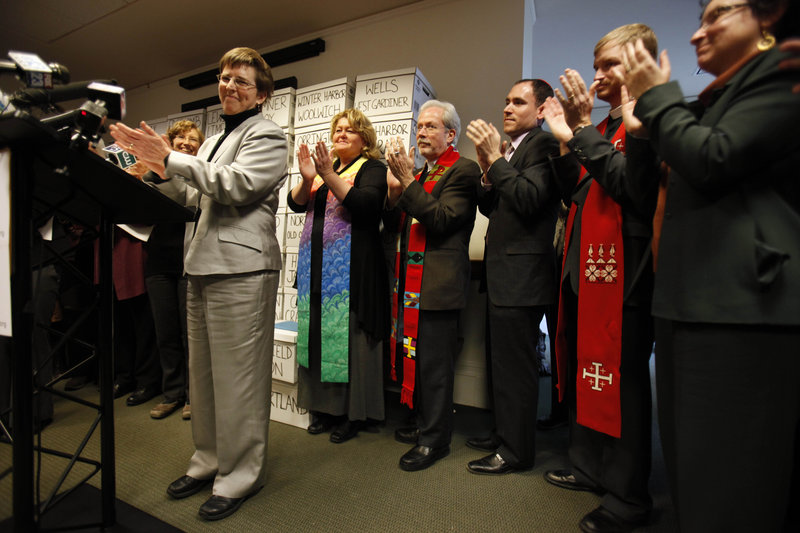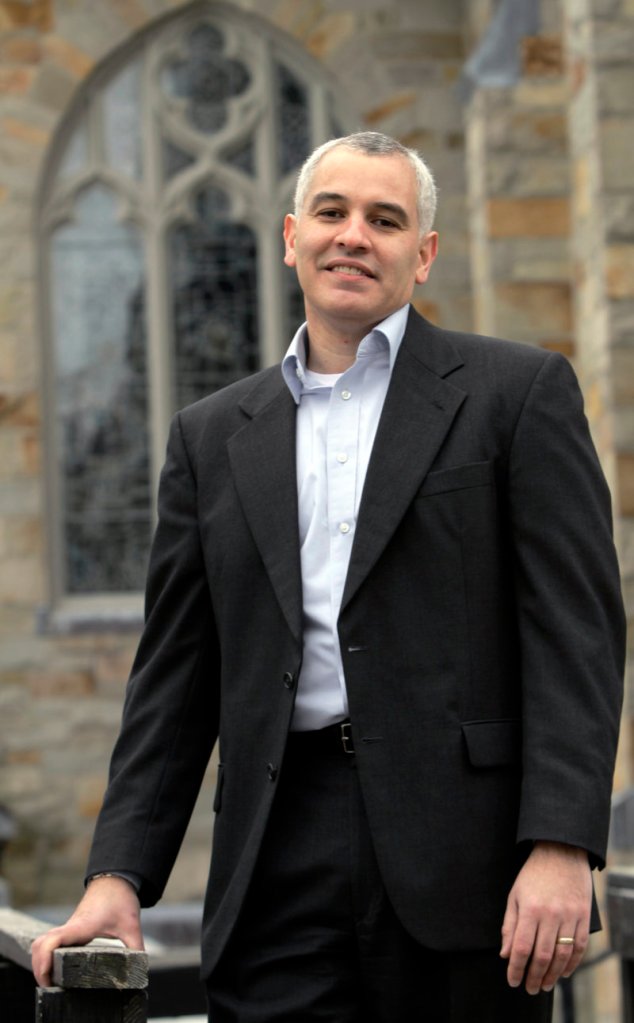PORTLAND — Gay marriage advocates say much has changed since 2009 when Mainers overturned a law legalizing same-sex marriage. Opponents agree.
But the two sides disagree on what those changes are and what they mean for this year’s gay marriage initiative, which is expected to be a statewide referendum question on November’s ballot.
Gay marriage activists say many people who opposed gay marriage in 2009 have shifted their stance. They base that view on poll numbers, one-on-one discussions with 40,000 residents and the strong response they had in collecting more than 100,000 signatures to get the matter on the ballot.
“Mainers have changed their minds on this issue,” said Betsy Smith, executive director of Equality Maine, which is spearheading the campaign. “They want the chance to right a wrong.”
Opponents agree things have changed — but not in the way gay marriage supporters are suggesting.
Maine’s population appears to be more conservative than in 2009, as evidenced by the Republican-controlled Legislature and the Republican governor elected in 2010, said Bob Emrich, a pastor and an outspoken opponent of gay marriage. He said gay marriage opponents also feel more comfortable voicing their opposition after rejecting same-sex marriage in 2009.
Some legislators were voted out of office in 2010 because they supported gay marriage when the Legislature legalized it in 2009, said Emrich, pastor of Emmanuel Bible Baptist Church in Plymouth.
“I think there’s been a change, but by any indicator it’s that Maine is becoming more conservative, not the other way around,” Emrich said.
After the Legislature legalized gay marriage three years ago, critics forced the question before voters, who overturned the law 53 percent to 47 percent.
Gay rights activists last month delivered petitions signed by more than 105,000 voters to the Secretary of State’s Office to get the issue on the November ballot. State officials last week said they’d verified more than 85,000 of the signatures, far more than the 57,277 that were required.
The question now goes to the Legislature and will be placed on the ballot if lawmakers, as expected, don’t approve the proposal themselves. The governor has not taken a public stand on the initiative, but has previously said he supports the “traditional definition” of marriage being between a man and a woman.
Gay marriage activists think Maine could become the first state to legalize gay marriage in a statewide popular vote.
Supporters say 54 percent of respondents in a December survey of 800 likely voters favored legalizing gay marriage. They say they’ve also gotten a positive response from the more than 40,000 people they’ve talked to in person and by phone on the issue, many of them in places that opposed same-sex marriage in the 2009 election. They plan to talk to another 100,000 Mainers one on one before Election Day to convince them that gay marriage should be legalized.
The one-on-one conversations are having the desired effect, said Matt McTighe, who’s working on the issue for the Gay and Lesbian Advocates and Defenders.
“People really are thinking about this differently,” he said.
McTighe and Smith shrug off the argument that Maine people are more conservative — and therefore less likely to vote in favor of legalizing gay marriage — than in 2009. Back then, Democrats controlled the Legislature and Democratic Gov. John Baldacci supported gay marriage.
Sixty-one percent of voters in the 2010 governor’s election supported candidates who support gay marriage, Smith said. Gov. Paul LePage won the election with 39 percent of the vote, with other candidates combining for 61 percent.
“This issue crosses the aisle. There’s no way to make a prediction about who’s going to turn out to vote for marriage based on whether you think more Democrats or Republicans are going to turn out to vote in 2012,” Smith said.
Opponents aren’t so sure Mainers have had a change of heart since the last time around.
Polling data are often wrong because people don’t feel comfortable answering questions about personal issues such as gay marriage, said Carroll Conley, executive director of the Christian Civic League of Maine. The same can be said for how people respond to informal discussions with gay marriage advocates in their homes or on the phone.
Brian Souchet, of the Roman Catholic Diocese of Portland, expects no change from 2009 in the election outcome. Souchet, director of the diocese’s office for the promotion and defense of marriage, thinks gay marriage backers are trying to convince themselves that things are different than the last election.
“I get the sense that they think if they say it enough, people will start to believe it,” Souchet said. “But what people say to your face and what they do in the polling booth are two very different things.”
Copy the Story LinkSend questions/comments to the editors.




Success. Please wait for the page to reload. If the page does not reload within 5 seconds, please refresh the page.
Enter your email and password to access comments.
Hi, to comment on stories you must . This profile is in addition to your subscription and website login.
Already have a commenting profile? .
Invalid username/password.
Please check your email to confirm and complete your registration.
Only subscribers are eligible to post comments. Please subscribe or login first for digital access. Here’s why.
Use the form below to reset your password. When you've submitted your account email, we will send an email with a reset code.